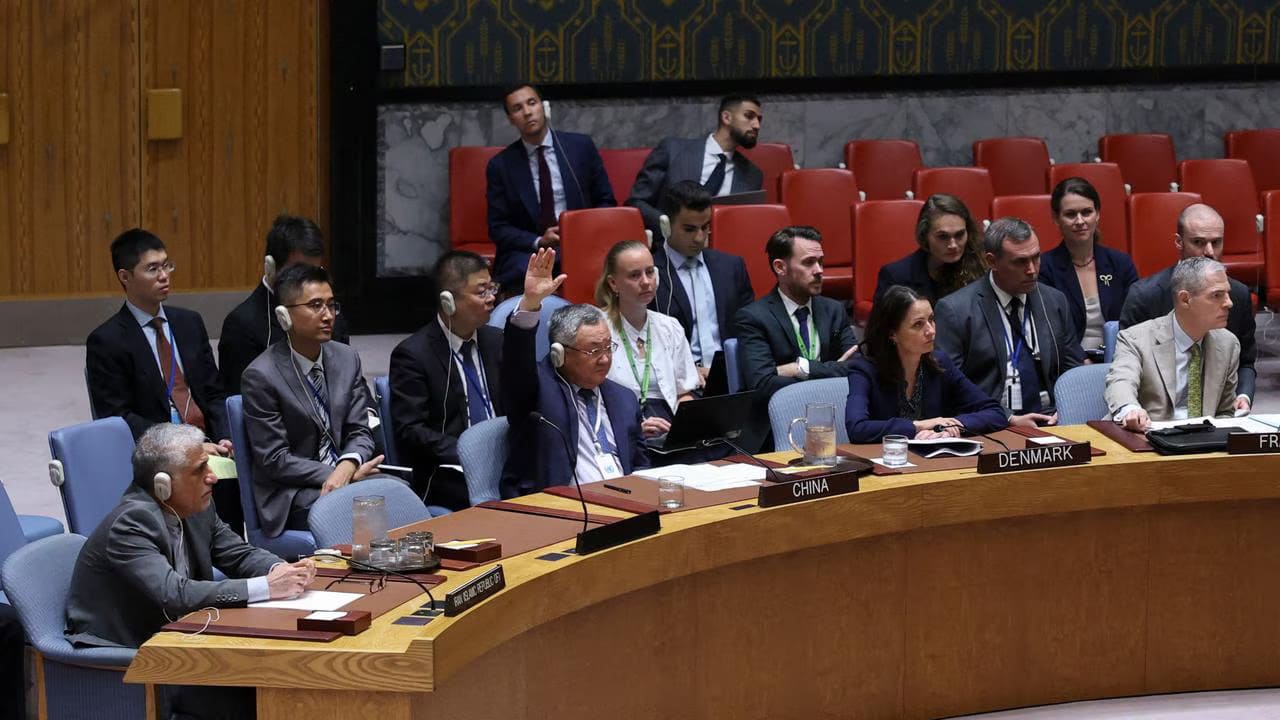
IndependentReport – The United Nations Security Council has officially reimposed economic sanctions on Iran after evidence suggested that Tehran had resumed activities within its nuclear program. This decision marks a critical moment in the global debate over nuclear proliferation, especially considering the 2015 Joint Comprehensive Plan of Action (JCPOA), which was designed to restrict Iran’s nuclear ambitions in exchange for the lifting of sanctions.
According to several European nations, including the United Kingdom, France, and Germany, Iran has significantly expanded its uranium stockpile, surpassing the limits established under the JCPOA. These developments have heightened international concern that Iran may be edging closer to producing materials that could be used for nuclear weapons, undermining years of diplomatic negotiations.
The sanctions were not adopted lightly. The UN Security Council’s move followed lengthy discussions among member states about Iran’s compliance and transparency. Reports from monitoring agencies indicated that Iran had ignored key provisions of the nuclear agreement, particularly in relation to uranium enrichment levels and access for inspectors.
While the United States has often taken a hardline stance on Tehran, this time the initiative was led largely by European countries. They argued that Iran’s nuclear program had crossed thresholds that could no longer be ignored, especially given the risk to regional and global security. What is striking is that the resolution passed without any veto from permanent members of the Security Council, highlighting a rare consensus on this contentious issue.
Also Read : Cyberattack on Heathrow Exposes Aviation’s Reliance on Third-Party Systems
Iran strongly rejected the sanctions, calling them an act of political coercion. Iranian representatives at the UN dismissed the resolution as illegal, asserting that Tehran has no obligation to comply with what they see as biased and unjust measures. From Iran’s perspective, the West has failed to uphold its end of the nuclear deal, particularly in easing economic pressure, which in turn justified Tehran’s decision to reactivate parts of its nuclear program.
The Iranian government also argue that the nuclear program is intend for peaceful purposes, such as energy production and medical research. Officials accused Western powers of double standards, claiming that countries with extensive nuclear arsenals are punishing Iran for pursuing what it calls legitimate scientific development.
To better understand the scope of the situation, here are several crucial points surrounding the UN sanctions and Iran’s nuclear program:
These points reveal not only the immediate consequences of the sanctions but also the broader diplomatic tensions surrounding nuclear oversight and global security.
The international community remains divided on how to respond to Iran’s nuclear program. Western nations, particularly in Europe, see sanctions as necessary leverage to pressure Tehran into compliance. They argue that without firm measures, Iran could continue developing capabilities that may eventually lead to nuclear weapons production.
Meanwhile, countries like Russia, China, Pakistan, and Algeria voiced opposition to the decision. These governments emphasized dialogue and criticized the sanctions as counterproductive, potentially driving Iran further away from international cooperation. Israel, on the other hand, welcomed the resolution, seeing it as a necessary step to counter what it perceives as an existential threat from Tehran’s nuclear program.
Although the sanctions have been approve, there are still opportunities for diplomacy. European leaders indicated that negotiations could continue during the upcoming UN General Assembly sessions. Their aim is to find a balanced arrangement that both reassures the international community and addresses Iran’s concerns about economic pressure.
For Iran, the challenge lies in demonstrating transparency while safeguarding its national interests. If Tehran can provide credible guarantees about the peaceful nature of its nuclear program, there may still be room for compromise. However, if it continues to expand uranium enrichment without oversight, the likelihood of prolonged sanctions and further isolation will only increase.
Read More : Revealed: The Top 10 Cars of 2025 That Are Blowing Minds
The revival of Iran’s nuclear program and the UN’s swift imposition of sanctions highlight the fragile state of international non-proliferation efforts. While Iran insists on its right to pursue nuclear technology for peaceful purposes, much of the world remains skeptical, fearing that the program could evolve into a weaponization pathway.
The coming months will be decisive. If no diplomatic breakthrough occurs, the sanctions taking effect in late September 2025 could plunge Iran deeper into economic hardship while further straining relations with the West. At the core of this standoff is the unresolve question can the nuclear program be contained within peaceful boundaries, or will it become the catalyst for a new era of global instability?
This Article About Nuclear Program Written by: Rahma Azhari | Editor: Micheal Halim
Information Source: theguardian.com